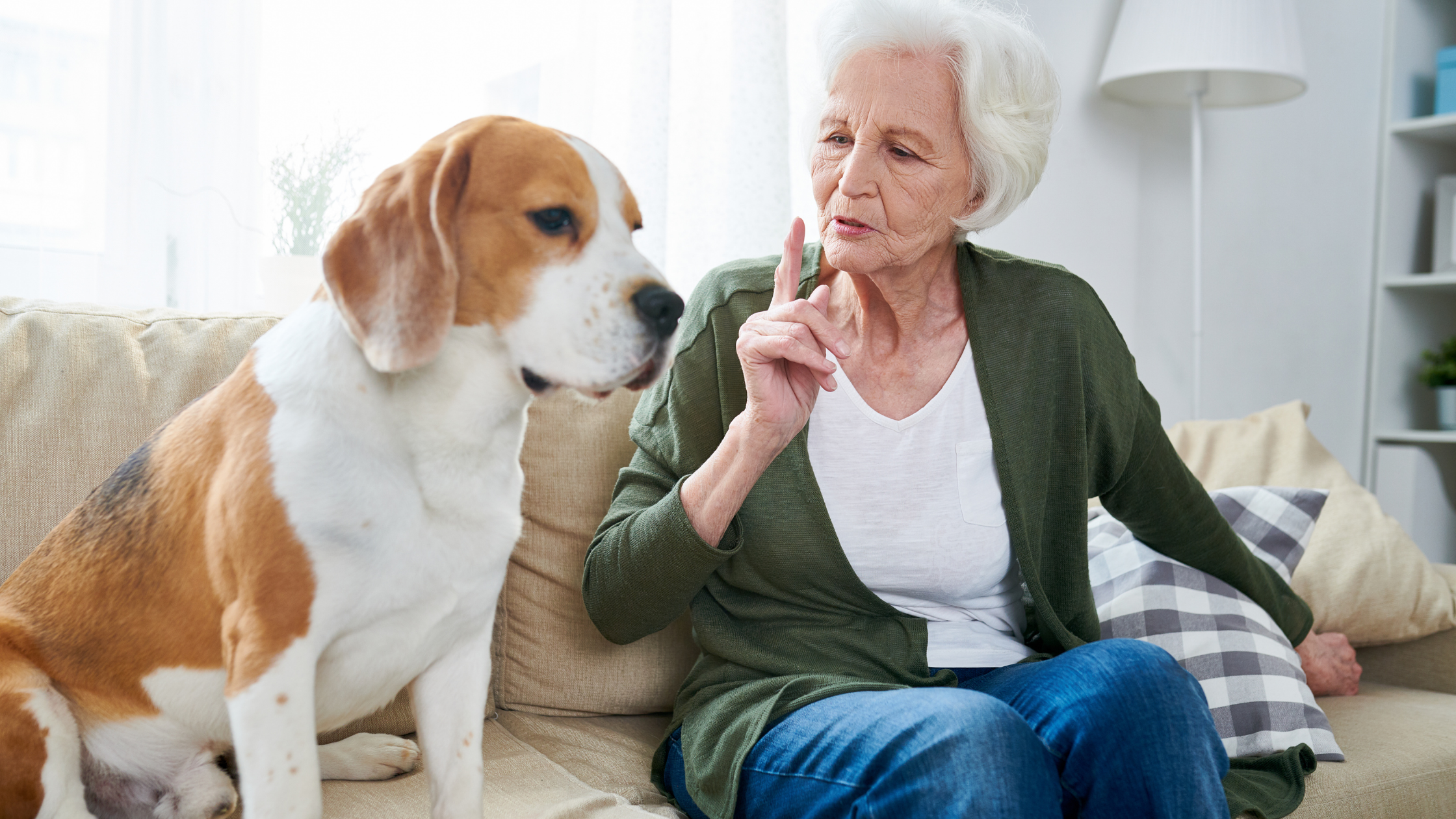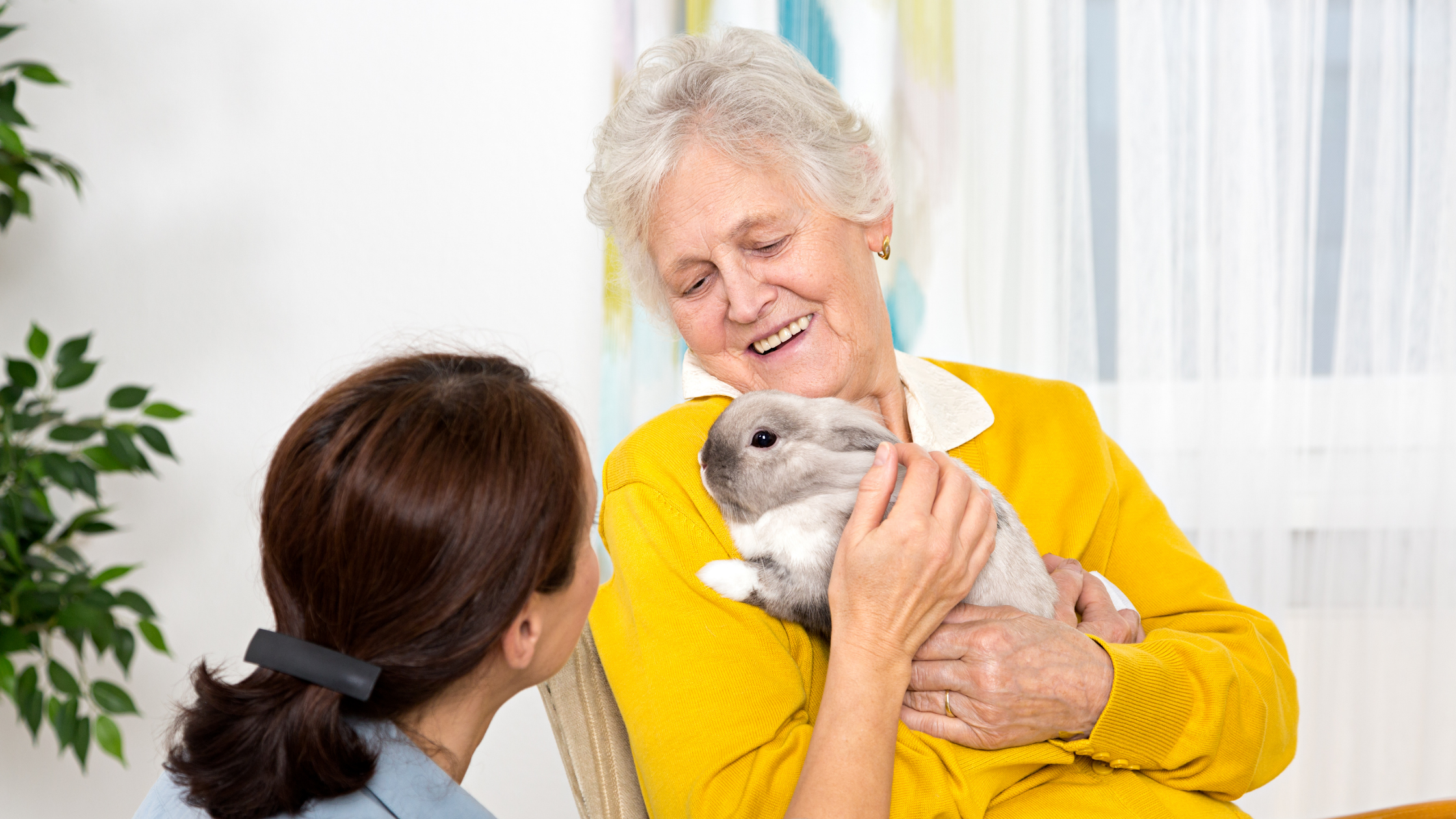Can Pet Therapy Boost Your Quality of Life?
Written by Tye Medical on Apr 9th 2021
Can Pet Therapy Make Your Life Better?
Have you been feeling more down or anxious? Is your blood pressure climbing despite medication? If so, you might benefit from pet therapy. And that’s no joke.
Science has found that when you interact with friendly animals, it triggers the release of endorphins. These brain chemicals calm your body and ease pain much like opioids do.
For some, pet ownership isn’t possible due to physical limitations, budget constraints, or even living arrangements. That’s where formal animal therapy comes in.
In these cases, a professional handler brings a trained animal to you for a structured session, whether you’re in an assisted-living facility, a nursing home, or a hospital.
But for others, investing time, money, and some energy into the right pet is the best option and reaps the most rewards.
This article explores the top therapeutic benefits of pet ownership for seniors and how it can impact your life.
 What Is Pet Therapy?
What Is Pet Therapy?
Formal Therapy
Also known as animal-assisted therapy (AAT), this type of pet therapy employs animals to help people with physical, mental, or emotional challenges. Typically, therapy animals are trained to meet your specific needs like offering comfort, alerting you to danger, or physically assisting you with an impairment.
This type of AAT involves formal, structured sessions involving you, the therapy animal, and its handler. The sessions are designed to help you meet your therapy goals. Most people involved with formal animal therapy also receive additional counseling or treatment outside of AAT.
Informal Pet Ownership
But structured sessions aren’t the only way to enjoy the benefits of pet therapy. Pet ownership offers you similar therapeutic benefits but without the structure, time constraints, or handler involvement.
Why Does It Work?
Animal therapy, whether formal or informal, capitalizes on the human-animal bond. Humans, in general, have a natural desire to interact with animals and relate to them, thereby forming a personal or emotional attachment.
It’s that bond that triggers endorphins to flood your system, promoting calm and blocking pain receptors.
What Kind of Animals Are Most Effective?
There are no rules when it comes to the specific species. It’s all about what type of animal draws you and how well you bond. Typically, people choose dogs or cats over other domesticated animals.
But some people have formed successful human-pet bonds with guinea pigs, fish, horses, and even reptiles.
Yes, people can bond with fish because of their beauty and graceful movements. Ever wonder why you see them in waiting rooms? Their presence promotes calm.
 7 Mental Health Benefits of Pet Therapy
7 Mental Health Benefits of Pet Therapy
1. Alleviates Boredom
Pets offer a welcome distraction from your thoughts, especially when you spend hours alone each day. Your furry (or scaly) friends need you to care for them, play with them, and show affection.
2. Offers Companionship
Most people talk to their animal friends, and no one listens better than a pet. Even when you’re quiet or sad, your pet is by your side. This can give you a sense of unconditional love that alleviates loneliness.
3. Increases Activity
As mentioned above, your pet relies on you. Even when your mood has tanked and you don’t feel energetic, your pet motivates you to action. After all, how can you say no to that adorable face when he drops his leash at your feet? This is what makes pet therapy so effective.
4. Increase Social Interaction
Your animal friend draws you out of yourself and into the world around you. As you’re tending to your pet and being playful, it can propel you toward more social behavior in the human realm too.
5. Boosts Mood
Remember those endorphins? Mood-boosting is another one of their benefits. Whether petting your cat or holding your lizard, the interaction improves your state of mind, increasing sociability and enhancing your well-being.
6. Reduces Stress
Need a dose of stress relief? Stress triggers are everywhere, whether it’s an emotional phone call with a family member or a bill that just arrived. But having a pet at home provides the type of unwavering support that promotes peace and relaxation despite circumstances.
7. Reduces Anxiety and Depression Feelings
As stress and loneliness decline, you might notice an improvement in anxiety and depression symptoms. Even when your loved ones can’t be near, a pet reminds you that someone cares.
 4 Physical Health Benefits of Pet Therapy
4 Physical Health Benefits of Pet Therapy
1. Reduces Blood Pressure
When your stress levels and mental health improve, it positively impacts your blood pressure. And some people can even reduce medications with doctor supervision.
2. Improves Cardiovascular Health
The increased calm and drop in blood pressure can do wonders for your cardiovascular health. Additionally, many pet owners get more exercise, which also helps boosts heart health.
3. Diminishes Physical Pain
In addition to the calming, pleasant effects of endorphins, remember that they also block pain sensors. This means that while you’re experiencing a boost in positive brain chemistry, you’re less likely to notice overall pain.
4. Promotes Relaxation
When your mind is plagued with stress, anxiety, and depressive feelings, your body experiences them too. But with lower stress and a better mood, it’s much easier to unwind physically. The positive brain activity calms your body and even relaxes your muscles. This physical relaxation boosts your general health.
 How to Tell If a Pet Is Right for You
How to Tell If a Pet Is Right for You
Informal, at-home pet therapy isn’t for everyone. Circumstances like health and your living situation might make pet ownership impossible. In such cases, consider a more structured approach, and you can start by finding animal-assisted therapy services in your area.
If you’re at home and are interested in pet ownership, be sure to assess your situation first. Ask yourself these questions:
- Am I physically able to care for the type of pet I want?
- Can I afford to care for the animal properly?
- Can I transport my pet to the vet for regular checkups?
- Do I have someone to assist me with the above as needed?
If you decide you’re ready for pet ownership, try searching www.petfinder.com. This site lets you search through hundreds of thousands of pets in a massive database. Most of these animals come from rescue groups.
But of course, be sure to meet your potential pet in person before agreeing to adopt.
Does Increased Stress Aggravate Bladder Leaks?
Have you noticed that your incontinence symptoms get worse when your stress or anxiety levels shoot up? It’s not a coincidence. Stressis a known trigger for overactive bladder, which can lead to urine leaks.
As you try tips and therapies (like pet therapy) to manage anxiety or stress, it helps to stay protected from the unexpected.
Our TYE Medical LivDry Protective Underwear will ensure you have one less thing to worry about as you move through your day.


